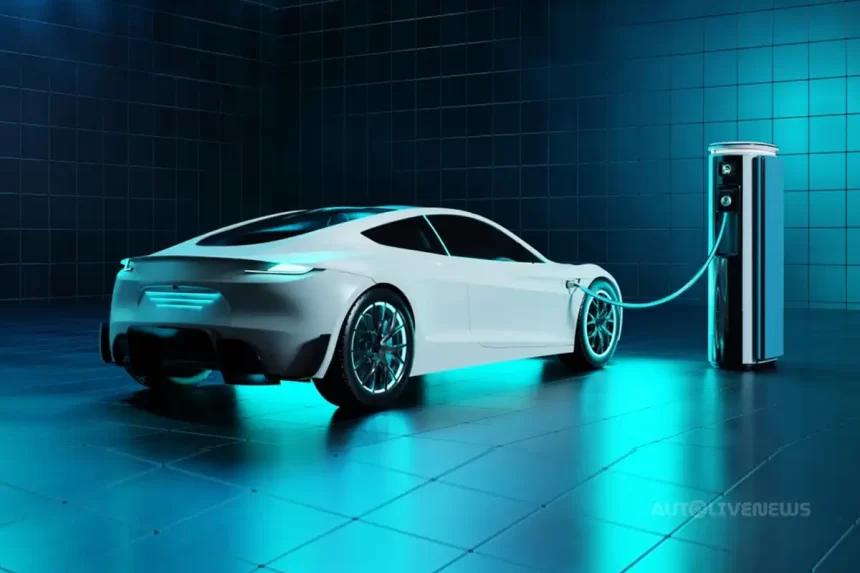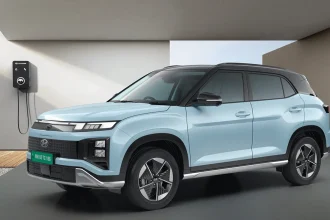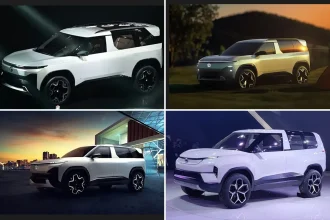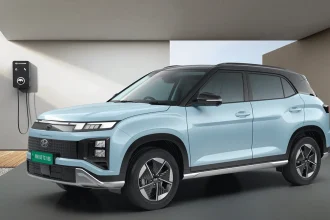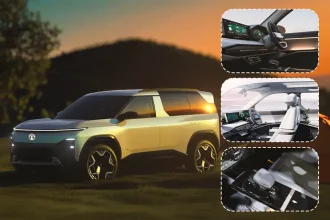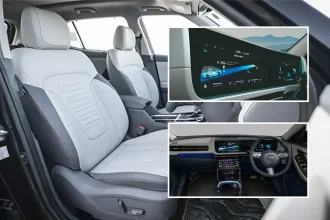As the world embraces cleaner energy solutions, electric vehicles (EVs) have emerged as a key solution to reducing carbon emissions and promoting sustainability. With global awareness increasing about the adverse effects of fossil fuels, the push for electric mobility is stronger than ever. But the question remains: Is India ready for electric vehicles?
In this blog, we will explore whether India is ready for electric vehicle mobility, evaluate the advantages and disadvantages of EVs, and review the companies taking the lead in EV manufacturing.
Is India Ready For EV Mobility? The Indian Ev Landscape
India, the world’s fourth-largest automobile market, has the potential to become a global leader in electric vehicles. The Indian government has set ambitious targets for EV adoption, aiming for 30% of all vehicles on the road to be electric by 2030.
With initiatives like the Faster Adoption and Manufacturing of Hybrid and Electric Vehicles (FAME) scheme, incentives for manufacturers and consumers, and a gradual shift in consumer awareness, India is undoubtedly gearing up for an electric vehicle revolution. But how prepared are the infrastructure, industry, and public?
EVs Dominate the Indian Automotive Scene
Despite the challenges, brands like Tata Motors, Mahindra Electric, Ather Energy, and Ola Electric have already begun manufacturing and selling electric vehicles in India.
The Bharat Mobility Expo 2025 clearly showcased the growing competition in the Indian EV market. In fact, more than 25 EVs were launched or showcased at the 2025 Bharat Mobility Global Expo. Top manufacturers like Maruti Suzuki, Toyota, Hyundai, BYD, Skoda, MG, and VinFast all showed off new launches and concept EVs at the Expo.
With more players joining the market, India’s shift to electric mobility looks promising. Some notable EV car models at the Bharat Mobility Expo include the Maruti Suzuki e-Vitara, Hyundai Creta Electric, Toyota Urban Cruiser BEV Concept, Harrier EV, Hyundai Ioniq 9, MG Cyberster, and the BYD Sealion 7. New two-wheeler EVs like the Hero Vida and the Ampere EV were also launched.
Is India Ready for Electric Vehicles?
So, is India ready for electric vehicles? Currently, India has made significant progress in terms of government policies, incentives, and the entry of major EV manufacturers
1.94 million EVs were sold in India in 2024, compared to just 1.19 lakh in 2020! Experts predict that the electric vehicle market in India will grow at a CAGR of 42.38% by 2025. The rapidly growing EV market shows that India is ready for electric vehicles and is embracing electric mobility with open arms.
Pros of Electric Vehicles in India
Is India ready for electric vehicles? To answer this question, we first need to explore the benefits that EVs provide. Here are some of the reasons for increasing EV vehicle demand in India:
Government Incentives
The government program PM E-DRIVE, which replaces the FAME-II scheme, has made EVs even more affordable to the public. It offers various incentives, such as tax rebates and discounts on electric vehicles, to encourage people to choose EVs.
Taking loans for electric cars is also more convenient as they have lower interest rates (8.5–9.5%) than ICE vehicles (9.3%–10.3%).
Advancements In Technology
The durability of electric car batteries and the rapid advancement in EV technology make electric vehicles a better choice for people. The range of electric vehicles is increasing day by day, and they also come equipped with many high-tech features.
Lower Fuel Costs
EV vehicles are cost-efficient in nature, as electricity is cheaper than fossil fuel. The demand for EVs is rapidly increasing due to their cost-saving benefits. The ever-increasing prices of petrol and diesel compel many people to consider EVs as an alternative.
Lower Maintenance Costs
Electric vehicles are relatively simpler machines than ICE ones; they do not have as many moving parts. This makes EV cars and bikes much easier to maintain and results in lower servicing and maintenance costs.
Reduces Pollution
83 of the world’s 100 most polluted cities are in India, and 27% of our country’s air pollution is caused by vehicles.
Unlike ICE vehicles, electric vehicles emit zero harmful gases, dust, and ash and do not cause air pollution. The increasing popularity of EVs may result in fewer ICE cars on the streets and lower air pollution levels.
Cons of Electric Vehicles in India
Is India ready for electric vehicles? We won’t know for certain unless we explore the cons of electric vehicles and the reasons that hinder their popularity in India.
Limited Charging Infrastructure
One of the biggest challenges for EV adoption is the lack of electric charging stations in India. While metro cities have seen some progress, much of the country, especially rural areas, lacks the infrastructure needed to support electric vehicles.
Battery Disposal and Recycling
While electric vehicles reduce air pollution, they introduce new environmental concerns related to the disposal and recycling of lithium-ion batteries. India lacks an efficient battery recycling infrastructure, which could create a waste management challenge in the future.
Energy Source Dependency
Currently, a significant portion of India’s electricity is generated from coal, a non-renewable resource. Thus, unless the shift to renewable energy is accelerated, the environmental benefits of EVs could be diminished due to the reliance on non-renewable electricity sources.
The Future Of Electric Vehicles In India
Consumers in urban areas, where charging infrastructure is slowly expanding, are showing increasing interest in switching to electric mobility. Additionally, the push towards sustainability, reduction of pollution, and a decrease in fuel dependency are strong motivating factors driving the sale of electric cars.
The success of electric vehicles in India relies on continued investment in EV charging infrastructure, advancements in battery technology, and a reduction in the cost of electric car production.
Frequently Asked Questions
What is the primary benefit of electric vehicles?
The primary benefit is their ability to reduce air pollution and provide lower running costs.
Are electric vehicles expensive in India?
Yes, EVs are generally more expensive than traditional vehicles, but government subsidies help reduce the cost.
Which are the top EV manufacturers in India?
Tata Motors, Mahindra Electric, Ola Electric, Ather Energy, and Bajaj Auto are leading EV manufacturers in India.
Is there enough charging infrastructure in India?
Charging infrastructure is expanding but remains limited, especially outside major cities.
Do electric vehicles have a lower range?
Many current EV models have a limited range, which is a concern for long-distance travel.



